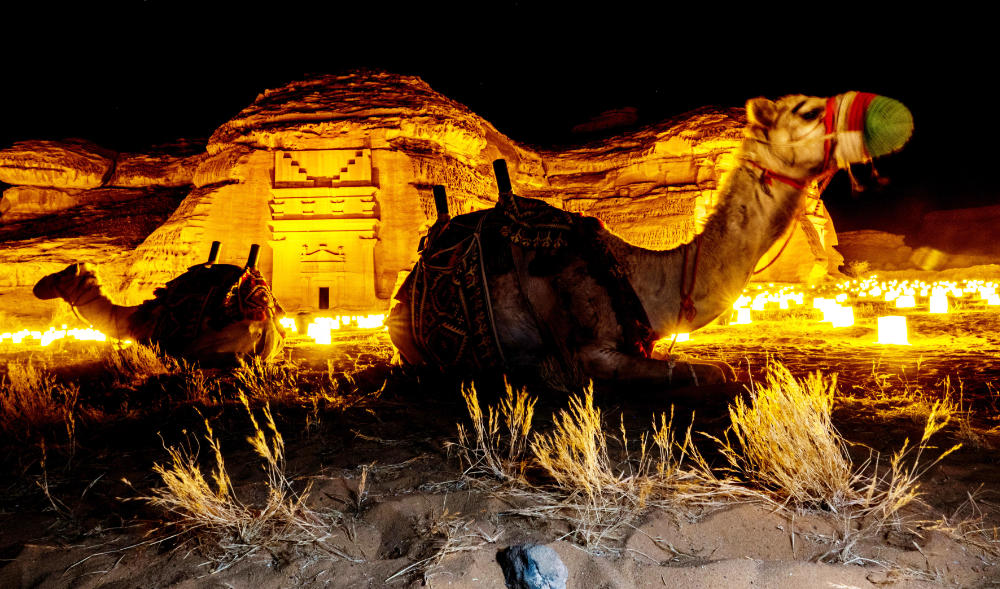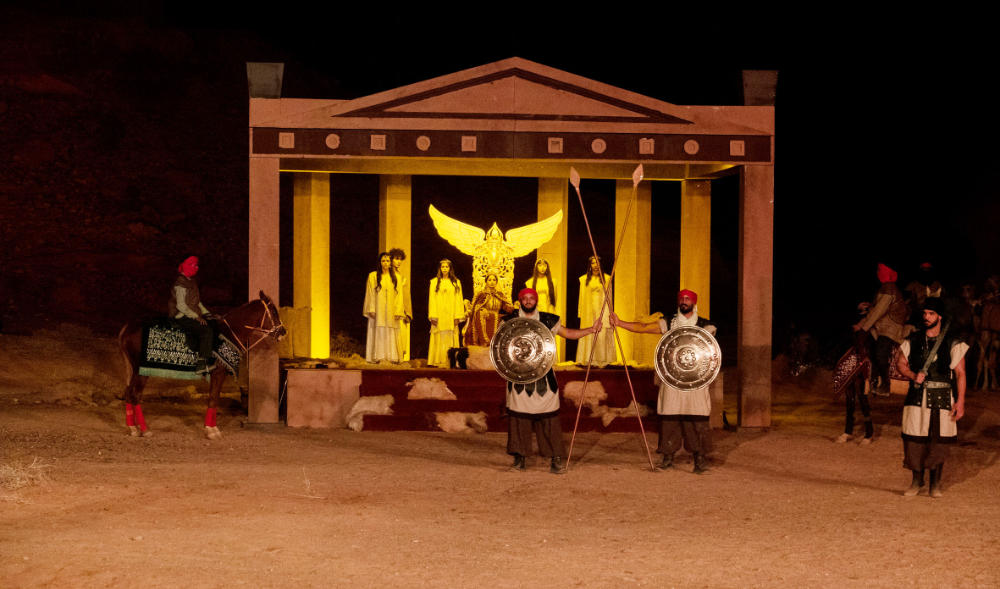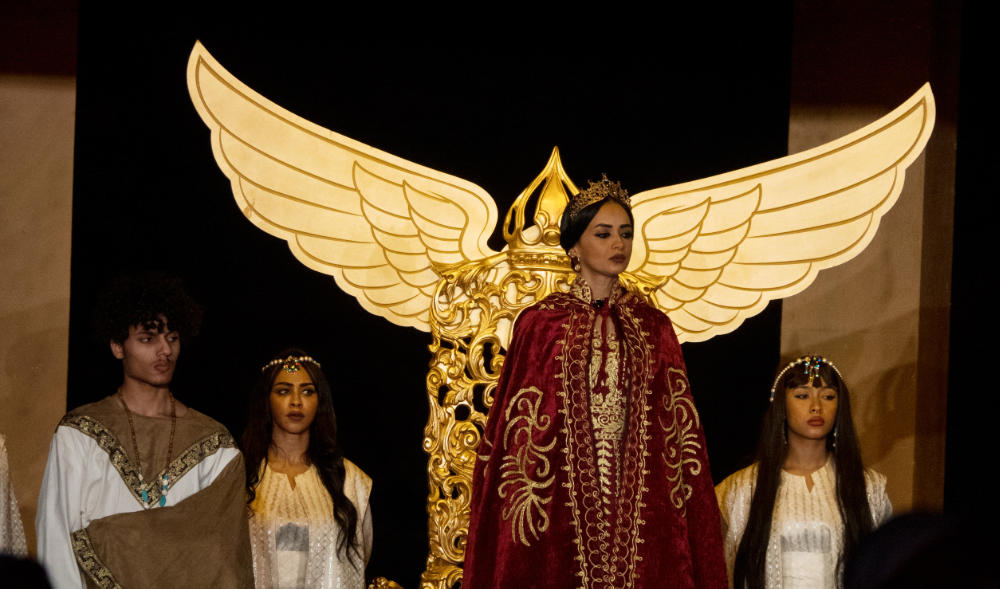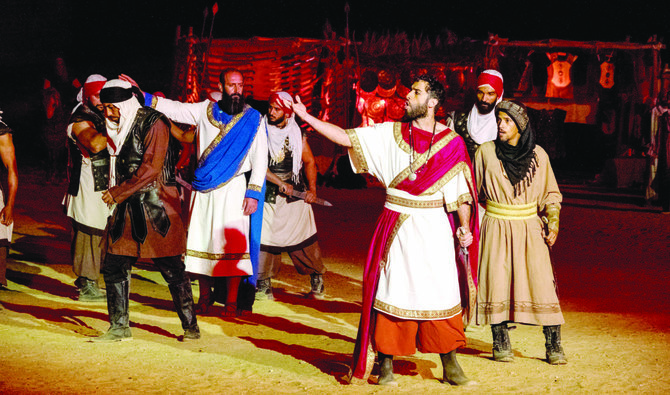AlUla: Visitors to the ancient sites of AlUla are being offered the chance to see the Saudi destination in a whole new light — through a series of illuminated nighttime tours.
Tourism chiefs at the UNESCO World Heritage Site have launched a four-week program titled Hegra After Dark, allowing visits to some of the area’s most significant monuments.
The Royal Commission for AlUla came up with the idea for the star-lit trips while conducting tourist research during the coronavirus disease (COVID-19) pandemic lockdown period.
Andrew Hall, the commission’s executive director for site and asset management, told Arab News: “COVID-19 has affected us in the past year. We have learned a lot about the sites over that time, and also learned that people like to visit places at night.

Hegra site illuminated with 2000-3000 electric candles (AN photo by Huda Bashatah)
“I think this is the first time we have activated it on a major scale, especially at Hegra. People get a different feeling of the place, and it is part of a strategy to attract people back for second visits.”
As part of the Awaken the Senses attraction, up to 3,000 battery operated candle lights have been set up around the tomb at Hegra to give onlookers a fresh perspective on the historic site.
HIGHLIGHTS
• Tourism chiefs at the UNESCO World Heritage Site have launched a four-week program titled Hegra After Dark, allowing visits to some of the area’s most significant monuments.
• Tourists arriving after sunset are greeted by people dressed in traditional clothing before going on to explore the grounds and then being served with warm Nabataean drinks made from locally grown ingredients.
Hall said: “Awaken the Senses is a way to visit, relax, and enjoy the ambiance in a beautifully lit-up place. The lights create a wonderful atmosphere; we don’t do heavy explanations or anything like that, we just want it to be a place of contemplation.”
By illuminating the heritage sites, officials hope to heighten the natural senses of visitors, helping them to experience what it must have like living there for the ancient Nabataeans.
Tourists arriving after sunset are greeted by people dressed in traditional clothing before going on to explore the grounds and then being served with warm Nabataean drinks made from locally grown ingredients.

Queen Shaklith Historical Re-enactment play taking place to familiarize the audience with Nabatean history (AN photo by Huda Bashatah)
Khulood Ahmad, a journalist visiting the site, said she had noticed a big difference from her previous trip to AlUla in 2018.
“It is very different from how you would see it during the daytime. The best way I can describe these sites at night is by saying that they are poetic. The weather made the experience so much better,” she added.
To add to the atmosphere, actors also perform a play about Nabataean history and the reign of Queen Shaqilat, a warrior empress, telling how the land and its people became prosperous as migrants were drawn to the oasis from other countries.

Queen Shaklith Historical Re-enactment play taking place to familiarize the audience with Nabatean history (AN photo by Huda Bashatah)
Battle scenes are also re-enacted, and visitors are led to Al-Farid Palace where they learn about the importance of the stars and night sky to the Nabataeans.
“It has come a long way and I can really see the effort put into every single detail of AlUla, from the hotels and food to the sites. I can also see the amazing opportunities on the horizon for the people of AlUla.
“It brings me joy to see the openness in AlUla that will give the locals a chance to show their land,” Ahmad said.


























